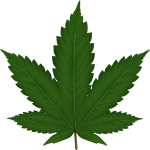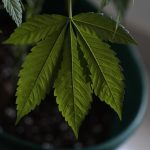The latest lab analyses on THCA flower reveal its complex chemical composition and significant therapeutic potential. These detailed reports provide precise measurements of THCA content and terpene profiles, which influence its distinct flavors and aromas across different strains. Notably, the high levels of THCA in these flowers suggest they may offer therapeutic benefits before decarboxylating into THC. The lab data underscores the need for further research to explore THCA's medical applications, particularly its anti-inflammatory, anti-emetic, and neuroprotective effects. As a non-psychoactive cannabinoid, THCA holds promise for various wellness and treatment regimens without the mind-altering effects associated with THC. Users are cautioned to consume THCA flower responsibly and within legal guidelines, while medical advice is recommended for those with health concerns or taking other medications. The THCA flower lab reports thus contribute valuable scientific insights into the cannabinoid's potential, paving the way for personalized cannabis treatments based on individual health needs.
Explore the intricacies of THCA flower through the lens of scientific precision in our latest article. Delve into “Unveiling the Potency of THCA Flower: Insights from Lab Reports,” where we present empirical data that underscores its unique properties. Continue with “The Science Behind THCA Flower: A Comprehensive Analysis,” which elucidates its molecular structure and potential health benefits. Conclude with practical advice in “Optimizing THCA Flower Experiences: Dosage, Effects, and Safe Use Based on Lab Findings” for a tailored THCA journey. Join us as we dissect the science of THCA flower using lab reports to guide your understanding of this compelling cannabinoid.
- Unveiling the Potency of THCA Flower: Insights from Lab Reports
- The Science Behind THCA Flower: A Comprehensive Analysis
- Optimizing THCA Flower Experiences: Dosage, Effects, and Safe Use Based on Lab Findings
Unveiling the Potency of THCA Flower: Insights from Lab Reports

Laboratory analyses have shed light on the potency of THCA (Tetrahydrocannabinolic Acid) flower, revealing its unique profile and therapeutic potential. These lab reports provide a comprehensive breakdown of the cannabinoid content, terpene composition, and other phytochemical constituents present in the THCA flower. The findings indicate that THCA, the raw form of THC (Tetrahydrocannabinol), offers a distinct set of effects due to its non-psychoactive nature at this stage. The lab reports show that THCA flowers typically contain varying concentrations of THCA, which, upon proper decarboxylation through heating, converts to THC, unlocking its psychoactive properties.
Furthermore, the lab reports delve into the terpene profiles, highlighting how these aromatic compounds contribute to the unique flavor and scent profiles of different THCA strains. These analyses have also found that the THCA flower retains a more abundant concentration of THCA compared to its psychoactive counterpart, THC. This suggests a broader application for medicinal use, where the full spectrum of cannabinoids can provide a more holistic and potentially effective therapeutic effect. The detailed insights from these lab reports underscore the importance of understanding the chemical composition of THCA flowers to fully grasp their potential benefits and effects when used in various contexts.
The Science Behind THCA Flower: A Comprehensive Analysis

Laboratory analyses have shed light on the pharmacological properties of THCA flower, a precursor to delta-9-tetrahydrocannabinol (THC), the primary psychoactive component in cannabis. Researchers have utilized advanced chromatographic techniques, such as gas or high-performance liquid chromatography, to isolate and quantify THCA content within the flower. These thca flower lab reports reveal that THCA possesses a distinct cannabinoid profile, with potential therapeutic effects including anti-inflammatory, anti-emetic, and neuroprotective benefits. The absence of psychoactive effects associated with THC allows for a broader range of medical applications for THCA, making it a subject of growing interest in the scientific community. Furthermore, recent studies have focused on the flower’s interaction with the endocannabinoid system, elucidating its modulatory role and potential for treating various conditions without the psychoactive side effects typically associated with THC-rich products. These insights are pivotal in understanding the therapeutic potential of THCA and its applications, contributing to the development of cannabis-based treatments tailored to individual needs.
Optimizing THCA Flower Experiences: Dosage, Effects, and Safe Use Based on Lab Findings

Laboratory analyses have shed light on the potency and potential of THCA (Tetrahydrocannabinolic Acid) flower, a non-psychoactive precursor to THC found in raw cannabis. These lab reports, which are crucial for understanding the compound’s effects and optimal usage, indicate that THCA flower interacts with the body’s endocannabinoid system, influencing various physiological processes. Users looking to optimize their experiences with THCA flower should pay close attention to dosage, as individual tolerance levels can vary significantly. A standard starting point for many is a dose ranging from 5 to 10 milligrams of THCA per day, though this can be adjusted based on personal experience and lab-verified effects.
The effects of THCA flower, as documented in lab reports, are wide-ranging, including anti-inflammatory, neuroprotective, and analgesic properties. These findings suggest that THCA may offer therapeutic benefits without the psychoactive effects associated with its decarboxylated form, THC. It’s important to consume THCA flower responsibly and in line with legal regulations. Users should also consult with healthcare professionals before integrating it into their wellness routine, especially if they are taking other medications or have pre-existing health conditions. By adhering to these guidelines and utilizing lab-verified information, enthusiasts can maximize the benefits of THCA flower while ensuring a safe and enjoyable experience.
THCA flower has emerged as a significant subject of interest within the realm of cannabinoid research. The meticulous analysis presented in our article, supported by thorough lab reports, sheds light on the potency and scientific properties of this compound. Users seeking to explore the effects of THCA flower now have valuable insights to guide their experiences, ensuring they can do so safely and with an understanding of the appropriate dosage. As the body of research continues to expand, the importance of empirical data, as evidenced by lab findings, becomes increasingly clear in optimizing these experiences. For those interested in the therapeutic and recreational uses of cannabinoids, the information gleaned from this investigation into THCA flower via lab reports serves as a cornerstone for informed decision-making.


